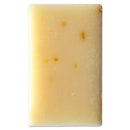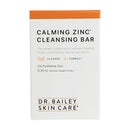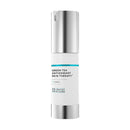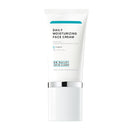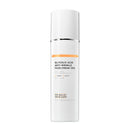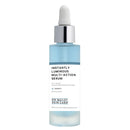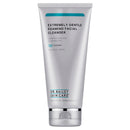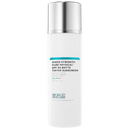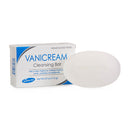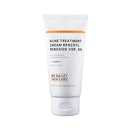What Hereditary Breast and Ovarian Cancer Week Means for You.

This week is National Hereditary Breast and Ovarian Cancer Week and it’s time for you to reevaluate your family history of hereditary cancer. Did you know that ¾ of a million people in the US alone have the infamous BRCA gene for breast or ovarian cancer and 90% don’t know it? I have the BRCA1 gene and did not know it – until I had cancer.
Dermatologist Dr. Cynthia Bailey has the gene for breast and ovarian cancer, could you too?

Knowing that you have a genetic risk of cancer allows you to take steps to avoid getting cancer, called Previving the cancer.
Previving cancer is even better than Surviving cancer.
- I survived breast cancer but I previved ovarian cancer because I learned that I carried a cancer gene. My grandmother died from ovarian cancer so she did not previve or survive it. I never met her.
- Angelina Jolie previved breast and ovarian cancer because she knew she had a BRCA gene mutation.
National Previvor Day is September 30th this year. Previving is the goal for those who have a gene mutation for cancer.
How do you know if you too have a gene for hereditary breast and ovarian cancer?
-
The BRCA mutations are the most common cause of inheriting an increased risk for breast and ovarian cancer but there are other genes too.

- Both men and women can have these genes.
- Men can pass them to their daughters or they can suffer from one of the cancers like breast, prostate or pancreatic cancer that the gene also puts us at increased risk for.
Everyone needs to think about their risk of having one of these cancer genes this week because previving cancer is a win!
Know the signs that you may have a hereditary risk of one of these gene mutations for cancer:
Do any of these apply to you or your family?
- Having a blood relative who has tested positive for one of the genes
OR, if you or any blood relative has had one of these cancers:
- Pancreatic, ovarian, fallopian tube,
- Primary peritoneal (the lining of your inner abdomen)
- Male breast cancer at any age
- Breast, colorectal or endometrial cancer at age 50 or younger
- Two separate cancer diagnoses
- A type of breast cancer called “triple-negative breast cancer” at age 60 or younger
- Prostate cancer at age 55 or younger or metastatic prostate cancer
- Colorectal cancer at any age with tumor testing that shows microsatellite instability (MSI-High) or other tumor test results that are suggestive of Lynch syndrome
- Endometrial cancer at any age with tumor testing that shows microsatellite instability (MSI-High) or other tumor test results that are suggestive of Lynch syndrome
- More than 10 colon polyps
- Rare or young-onset cancers
- Tumor testing that shows a mutation in a gene associated with hereditary cancer
- Eastern European Jewish ancestry and breast, ovarian or pancreatic cancer at any age
OR, if more than one family member on the same side of the family has had a combination of the following cancers:
- Breast cancer
- Ovarian, fallopian tube or primary peritoneal cancer
- Prostate cancer
- Pancreatic cancer
- Melanoma
- Colorectal cancer
- Endometrial cancer
- Stomach cancer
- Rare or young-onset cancers
If you or someone you love answered ‘yes’ to these questions, ask your physician to send you to a cancer genetics specialist. (Thanks and gratitude to FORCE for this information.)
Knowing you carry a gene for hereditary cancer is your chance to Previve, which is even better than Surviving, cancer.
Hereditary cancers are different. They happen earlier in life, are often more aggressive and sometimes need different treatment than non-hereditary cancers. It's important to know if you or your loved ones carry a cancer gene. My doctors saved my life because they knew I carried the BRCA gene and gave me the right treatments.
To understand how the genetics work, I created my BRCA infographic. Learn how a cancer gene can be inherited and passed through the family.
I’ve made cancer education, advocacy and fundraising a priority because I want to help others Previve and Survive cancer.
Cancer hit me, my career, and my family hard in 2013. At the age of 56 I was diagnosed with the most aggressive breast cancer in each breast. My chance of survival was poor. I was also diagnosed with being a BRCA1 gene mutation carrier - and I never knew.
After a year of treatment that included really aggressive chemotherapy and many surgeries, I look at life differently. I'm also a part of an important and growing cancer community. By actively participating, I'm able to help others who are diagnosed after me:

1) I created a Chemotherapy Skin Care Kit to help chemo patients keep their skin healthy and comfortable. This helps to prevent skin infections and unnecessary suffering that can be avoided with a dermatologist's skin care advice.
My mom had beautiful skin and then chemotherapy and radiation made her skin hypersensitive to everything. I am so grateful for your cancer friendly products. They were a 'life saver' for us; when you are dealing with everything else about cancer the last thing you want is an extra problem. Patricia A
2) I send all of the profits from my sales of my Chemotherapy Skin Care Kit to FORCE. FORCE is there so we don’t have to face this alone and ill prepared. Their help was invaluable to me - when I needed them, they were there. Plus, what's learned on us benefits all cancer patients. Supporting FORCE is important for everyone.
3) I openly shared my BRCA and breast cancer story during the cancer treatment year and since. I know that this openness and the information I’ve written has led to a number of other people discovering that they too carry the BRCA gene and they have taken steps to Previve breast and ovarian cancer because of it.
4) I've written many articles with tips and lessons learned from being a dermatologist turned cancer patient:

HBOC week is an important week for you too.
Look into your family history of cancer and think about whether you might have a hereditary cancer gene. BRCA Breast Cancer Survivor Dr. Cynthia Bailey
I didn’t know enough about my family history and I did not take the time out of my busy life to really research it. Do it now. Believe me, it beats chemo and cancer.
To read more about my cancer experience click here.

